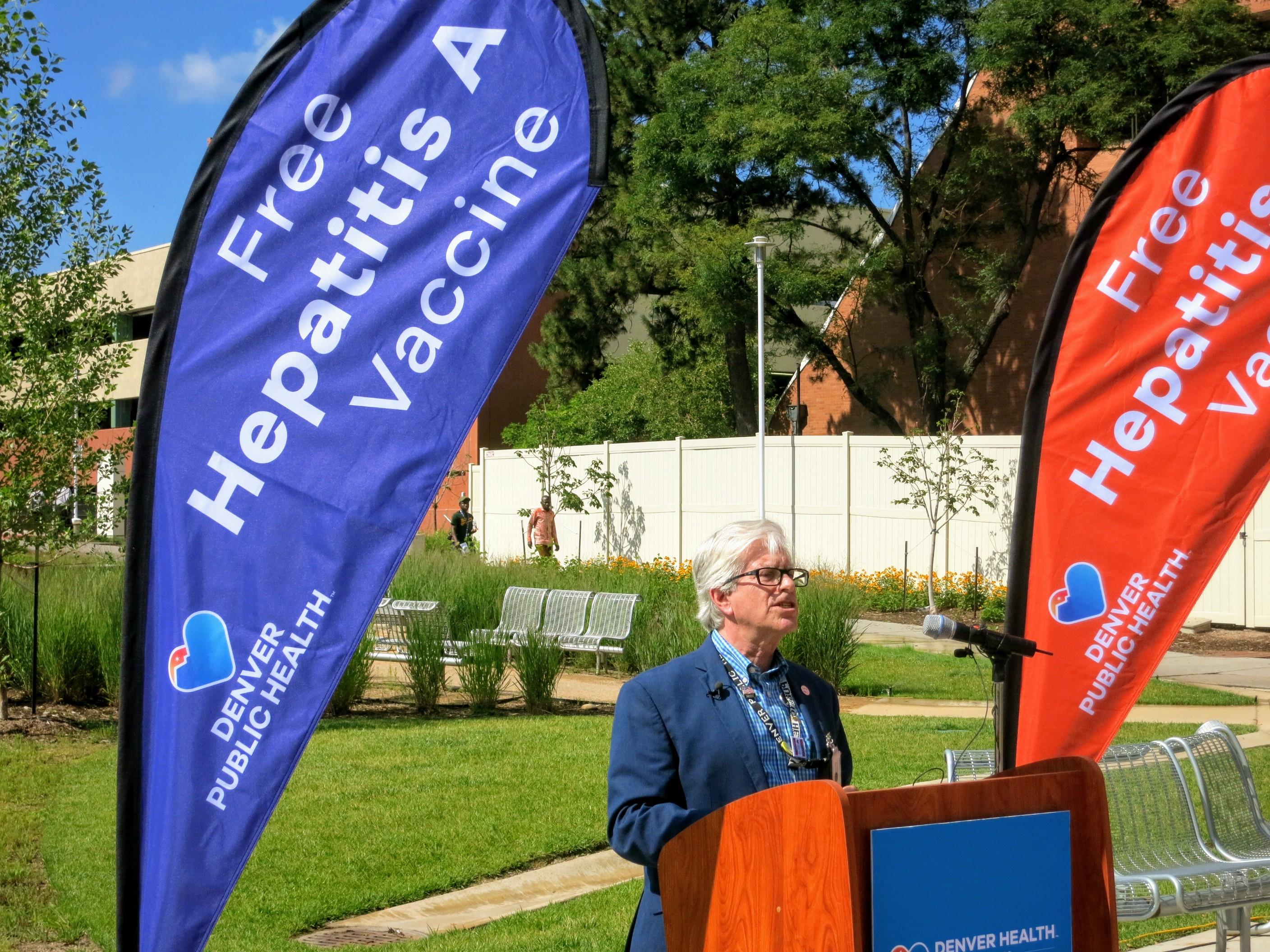An outbreak of hepatitis A that a Denver Health official says could last many more months has reached 30 people since June.
Dr. Seth Foldy, who is director of epidemiology in the public health department of the Denver Health and Hospital Authority, and officials from Denver's Department of Public Health and Environment first reported the outbreak in July. They said then that there had been four cases since June in Denver. Earlier cases had been detected in Colorado Springs.
"We continue to have cases of hepatitis A among people who are experiencing homelessness or substance abuse or for the most part both," Foldy said, putting the Denver total at more than 30 in an update on Monday.
The rate of infection "doesn't seem to be accelerating. Nor is it going down," Foldy said.
"To date we're not seeing any increase in hepatitis A in the general population," he added.
Danica Lee, director of public health inspections for Denver's Department of Public Health and Environment, said no infections in restaurants have been linked to the outbreak.
It's part of a nationwide outbreak that started in California in 2016 among people experiencing homelessness or who are drug users. The outbreak has reached 30 states, according to the Centers for Disease Control and Prevention. Only two states, including California, have declared their outbreaks ended. Foldy said it could be "many months" before the outbreak is ended in Denver, adding he could not be more specific.
"It's very hard to get it to end," he said.
Hepatitis A is a liver disease that's rarely fatal. The Centers for Disease Control and Prevention said the 254 deaths nationwide in the current outbreak is a higher rate that normal, an indication of the vulnerability of those affected.
Denver, seeing what was happening in other states, started a response in 2017 that has included a vaccination campaign. The campaign has been stepped up since the first four cases were detected. Of the 5,600 hepatitis A shots given since 2017, 2,300 -- just over 40 percent -- have been in July and August, Foldy said. Nurses have walked Denver's parks to give out shots. The sheriff's department has begun screening people entering the jail to determine who might be at risk and has administered more than 200 vaccinations since July.
"It's a very challenging population to reach and to find," Foldy said. "I'm actually quite proud of the work that's been done here."
The city also is trying to ensure people living in homelessness have bathrooms and places to wash their hands with soap and water, key to controlling a disease spread from the feces of an infected person via food or drink. That has included placing some people who are recovering from hepatitis A in hotel rooms, said Lee of the Department of Public Health and Environment. Lee said that in such cases hotel management and staff receive information on cleaning and disinfecting possibly affected areas.
The Colorado Coalition for the Homeless and other service providers are part of the effort to get people vaccinated and explain how they can keep safe.
"We probably haven't had as many (cases) as we could have had had we not started the education and vaccination campaign earlier," said Cathy Alderman, the Colorado Coalition for the Homeless's vice president of communications and public policy.
The coalition has been administering vaccines at its Stout Street clinic, from its mobile clinic and in clinics it has set up at shelters.
Alderman urged the city to continue to improve access to bathrooms, including portable facilities, and stations where people can wash their hands.












